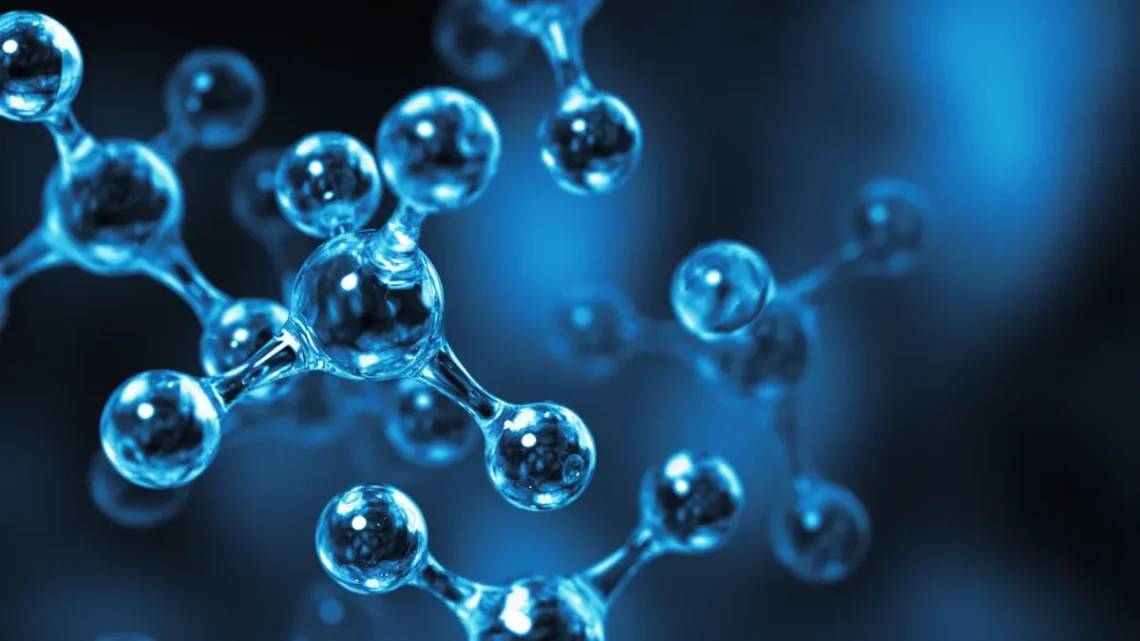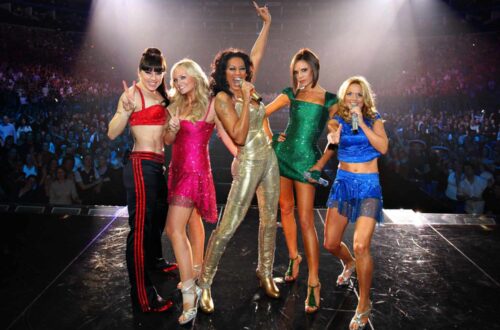I’ve always been that history buff who devours old books and documentaries, imagining what it was like to live through pivotal moments. During a trip to Europe a few years back, standing in Gutenberg’s printing museum in Mainz, Germany, I felt the weight of how one invention sparked the Renaissance. Discoveries like that don’t just alter science—they reshape societies, economies, and our very understanding of existence. Drawing from decades of reading and conversations with historians, this guide ranks the top 10 greatest discoveries, from ancient breakthroughs to modern marvels. We’ll explore their origins, impacts, and why they endure, using insights from 2025’s latest reflections on innovation. Whether you’re a student or a curious mind, let’s journey through these game-changers that defined humanity.
10: The Compass – Navigating the Unknown
Invented in ancient China around 200 BCE, the compass revolutionized exploration by using Earth’s magnetic field to point north. Initially a lodestone spoon on a bronze plate, it evolved into the magnetic needle we know today. This simple tool turned guesswork into precision, opening seas and lands to discovery.
Historical Context
The Han Dynasty used compasses for divination before sailors adopted them for navigation by the 11th century. Europeans learned of it via trade routes, with Italian mariners refining it in the 1300s. It’s like the GPS of its time, but powered by nature.
Global Impact
The compass enabled the Age of Exploration, from Zheng He’s voyages to Columbus’s crossings, boosting trade and empires. It cut sea travel risks, fostering cultural exchanges. Without it, globalization might have lagged centuries.
9: Fire – Humanity’s First Spark
Controlled fire, harnessed around 1 million years ago by Homo erectus, transformed survival by providing warmth, protection, and cooked food. Evidence from African sites shows early humans used friction or sparks to ignite flames, a skill that spread globally. This discovery wasn’t just about heat—it was the dawn of technology.
Historical Context
Archaeological digs in Wonderwerk Cave, South Africa, date fire use to 1 million BCE, evolving from opportunistic flames to deliberate hearths. By 400,000 BCE, it was routine in Europe. Imagine our ancestors huddling around a blaze, sharing stories—that’s where community began.
Transformative Effects
Fire enabled migration to colder climates, improved nutrition through cooking (reducing disease), and sparked tool-making. It lengthened days, boosting social bonds. Humorously, it’s the original “life hack” that turned raw meat into gourmet.
8: The Printing Press – Democratizing Knowledge
Johannes Gutenberg’s 1450 invention of movable type printing in Mainz, Germany, mechanized book production, slashing costs and time. Using metal type and oil-based ink, it printed the Gutenberg Bible as its first major work. This breakthrough flooded Europe with ideas, igniting intellectual revolutions.
Historical Context
Before Gutenberg, books were hand-copied by monks, rare and expensive. His press, inspired by wine presses, produced 180 Bibles in three years. It spread from Germany, reaching England by 1476.
Societal Revolution
The press fueled the Renaissance, Reformation, and Scientific Revolution by making texts accessible. Literacy soared, ideas like Luther’s theses went viral. It’s the social media of the 15th century, but with lasting ink.
7: The Wheel – Rolling Into Civilization
Invented around 3500 BCE in Mesopotamia, the wheel started as a potter’s tool before becoming a transport marvel. Early versions were solid wood disks on carts, evolving to spoked designs by 2000 BCE. This simple circle propelled humanity forward, literally.
Historical Context
Evidence from Slovenian marshes shows wheeled vehicles by 3500 BCE, spreading to Europe and Asia. Egyptians used them for chariots around 2000 BCE. It wasn’t instant—pottery wheels came first.
Enduring Legacy
The wheel enabled trade, warfare, and agriculture, birthing cities and empires. From carts to cars, it’s foundational. Light humor: Without it, we’d still be dragging sleds, and Uber would be “U-drag.”
6: Electricity – Powering the Modern World
Benjamin Franklin’s 1752 kite experiment linked lightning to electricity, but practical harnessing came with Alessandro Volta’s 1800 battery and Michael Faraday’s 1831 electromagnetic induction. These laid the groundwork for widespread use, lighting up the world.
Historical Context
Ancient Greeks knew static electricity from amber, but Volta’s voltaic pile was the first battery. Faraday’s generator turned mechanical energy into electric. Edison’s 1879 bulb commercialized it.
Electrifying Changes
Electricity revolutionized industry, communication, and daily life, from factories to the internet. It extended days, boosted productivity. Emotionally, it banished darkness, symbolizing progress.
5: Atomic Energy (Nuclear Fission) – Unleashing the Atom
Enrico Fermi’s 1942 Chicago Pile-1 achieved the first controlled nuclear reaction, building on Otto Hahn’s 1938 fission discovery. This unlocked atomic power, culminating in the 1945 Manhattan Project bombs. It’s a double-edged sword of energy and destruction.
Historical Context
Einstein’s 1905 E=mc² hinted at atomic energy; Hahn split uranium in 1938. WWII accelerated development, with Oppenheimer leading the bomb project. Post-war, it powered reactors.
Dual Legacy
Nuclear fission ended WWII but ushered in the atomic age, with bombs killing 200,000 in Hiroshima and Nagasaki. Peacefully, it generates clean energy. Pros: Vast power; cons: Radiation risks.
Pros and cons of nuclear fission:
- Pros: Efficient energy, low emissions.
- Cons: Weapons potential, waste issues.
4: The Internet – Connecting the Globe
Developed from ARPANET in 1969, the internet exploded with Tim Berners-Lee’s 1989 World Wide Web. Vint Cerf and Bob Kahn’s TCP/IP protocols enabled global networking, transforming information flow.
Historical Context
U.S. Defense funded ARPANET for resilient communication; Berners-Lee proposed the web at CERN. By 1993, it was public, booming in the 2000s with broadband.
Digital Revolution
The internet democratized knowledge, e-commerce, and social connections, creating a $8 trillion economy by 2025. It’s the nervous system of modern life, though with privacy pitfalls.
3: Theory of Relativity – Rewriting Reality
Albert Einstein’s 1905 special relativity (E=mc²) and 1915 general relativity redefined space, time, and gravity. These theories explained black holes and the universe’s expansion, influencing tech from GPS to nuclear power.
Historical Context
Einstein built on Lorentz and Poincaré, publishing amid WWI. Eddington’s 1919 eclipse observations confirmed it. It challenged Newton’s laws, sparking quantum debates.
Profound Influence
Relativity enabled atomic energy, GPS accuracy, and cosmology. Culturally, it shifted worldviews to a relative universe. Einstein’s genius still humbles me.
2: DNA Structure – Unlocking Life’s Code
James Watson and Francis Crick’s 1953 model of DNA’s double helix, aided by Rosalind Franklin’s X-ray images, revealed how genes replicate. This discovery birthed modern genetics and biotechnology.
Historical Context
Miescher found nucleic acids in 1869; Franklin’s Photo 51 was key. Watson and Crick published in Nature, crediting others. It solved heredity’s puzzle.
Biological Transformation
DNA led to genetic engineering, forensics, and medicine like CRISPR. It’s the blueprint of life, enabling personalized treatments. Emotionally, it connects us all biologically.
1: Penicillin – Defeating Invisible Killers
Alexander Fleming’s 1928 discovery of penicillin from mold revolutionized medicine as the first antibiotic. Mass-produced in WWII, it saved millions from infections, slashing mortality rates.
Historical Context
Fleming noticed mold killing bacteria in a petri dish; Florey and Chain purified it in 1940. WWII demand accelerated production, treating soldiers effectively.
Lifesaving Legacy
Penicillin cut infection deaths by 90%, extending lifespans and enabling surgeries. It birthed antibiotics, though resistance is a modern challenge. It’s the miracle drug that changed healthcare.
Table comparing ancient vs. modern discoveries:
| Discovery | Era | Inventor/ Discoverer | Key Impact |
|---|---|---|---|
| Fire | Prehistory | Early humans | Survival, cooking |
| Wheel | 3500 BCE | Mesopotamians | Transport, machinery |
| Compass | 200 BCE | Chinese | Navigation, exploration |
| Printing Press | 1450 | Gutenberg | Knowledge spread |
| Electricity | 1752-1831 | Franklin/Faraday | Power, tech revolution |
| Penicillin | 1928 | Fleming | Medicine, saved lives |
| DNA Structure | 1953 | Watson/Crick | Genetics, biotech |
| Relativity | 1905/1915 | Einstein | Physics, energy |
| Internet | 1969-1989 | ARPANET/Berners-Lee | Connectivity, information |
| Atomic Energy | 1938-1942 | Hahn/Fermi | Power, warfare |
- Pros of These Discoveries: Advanced society, improved lives.
- Cons: Some (atomic bomb) caused harm; others led to misuse.
Comparison: Medical vs. Physical Discoveries – Medical (penicillin, DNA) save lives directly; physical (relativity, electricity) enable tech wonders.
Why These Discoveries Stand Out
These 10 shifted paradigms, from fire’s warmth to the internet’s web. As someone who’s traveled to sites like Franklin’s lab replicas, I’ve felt their ripple effects. They’re not just events—they’re humanity’s turning points.
Lasting Societal Changes
Fire built communities; the wheel spurred trade. Modern ones like DNA fuel ethics debates on gene editing. Each built on the last, accelerating progress.
Lessons for Today
They show curiosity drives change, but with responsibility—atomic energy’s dual use warns us. In 2025, CRISPR echoes DNA’s impact, promising cures.
Cultural Reflections
From Einstein’s fame to Gutenberg’s Bible, they inspired art and philosophy. Humorously, without the wheel, we’d be stuck in the Stone Age—literally.
People Also Ask: Greatest Discoveries Queries
Based on common Google searches:
- What is the greatest discovery in history? Often cited as fire or the wheel, for enabling civilization’s basics.
- Who discovered penicillin and how? Alexander Fleming in 1928, noticing mold killing bacteria in a dish.
- How did the printing press change the world? It spread knowledge, fueling the Renaissance and literacy boom.
- What’s the impact of Einstein’s relativity? Revolutionized physics, enabling GPS and nuclear energy.
- When was the internet invented? ARPANET in 1969, but the web by Tim Berners-Lee in 1989.
FAQ: Answering Discovery Questions
What discovery had the biggest impact on medicine?
Penicillin, discovered in 1928, as it introduced antibiotics and saved millions from infections.
How did the wheel change ancient societies?
It enabled efficient transport, boosting trade, warfare, and agriculture across civilizations.
Where can I learn more about DNA’s discovery?
Visit the Science Museum in London or read “The Double Helix” by James Watson on amazon.com.
Is the atomic bomb considered a discovery or invention?
It’s both—fission discovery in 1938 led to the bomb’s development in 1945.
Why is fire the oldest discovery?
Evidence dates controlled fire to 1 million years ago, fundamental to human evolution.





